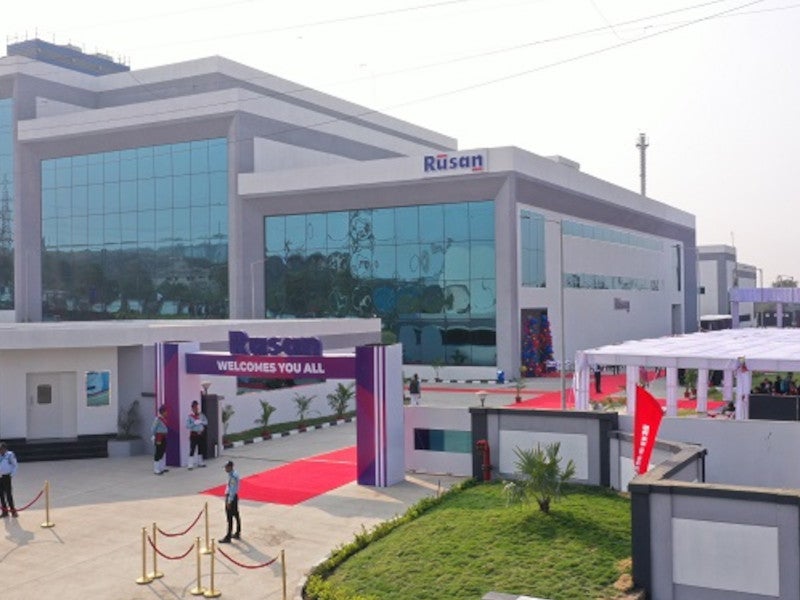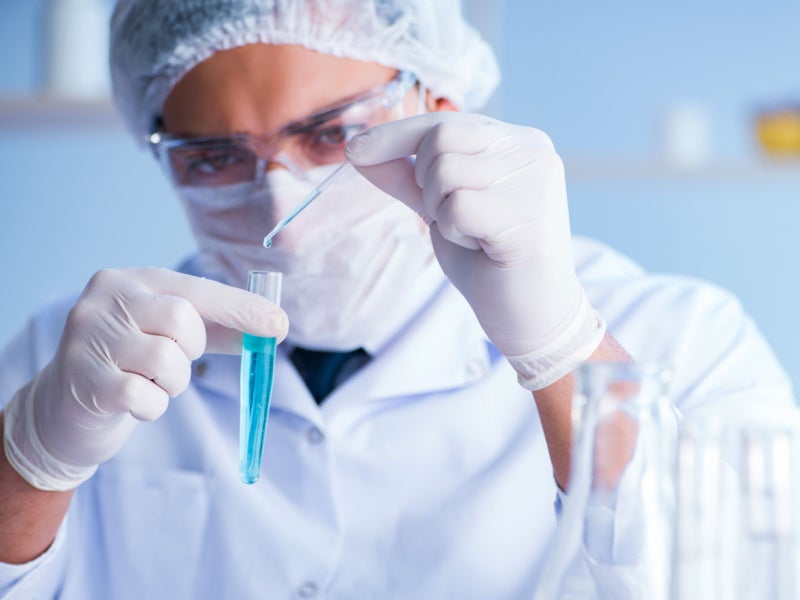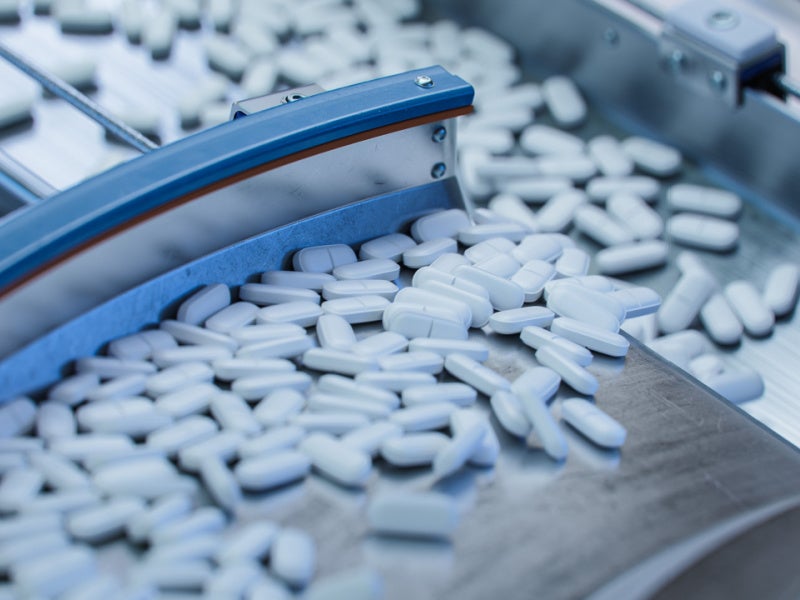Rusan Pharma, a pharmaceutical company based in India, opened its new active pharmaceutical ingredients (API) manufacturing facility in Madhya Pradesh, India, in November 2023.
The project involves an investment of approximately Rs3bn ($36.06m) in two phases to increase Rusan Pharma’s API production capacity and address the growing demand for addiction treatment and pain management products domestically and globally.
The new facility will also support the company’s expansion plans and enable the diversification of its product portfolio.
The project employed about 3,000 contract workers during the construction phase. It will generate 300 direct employment opportunities and more than 500 indirect jobs, upon commencing full operations.
Location of Rusan Pharma’s API manufacturing site
Rusan Pharma’s API manufacturing facility is developed within a dedicated pharmaceutical zone of the Special Economic Zone (SEZ) located in Pithampur, Madhya Pradesh.
The choice of location within the SEZ mitigates the risk of industrial pollution from neighbouring areas, ensuring a cleaner environment for the facility.
Additionally, the location is strategic for streamlining the company’s business and export activities, given the proximity to a dry port near the SEZ.
Rusan Pharma’s API manufacturing facility details
Rusan Pharma’s new facility features five modular API manufacturing blocks with exclusive suites for finished product manufacturing that adhere to international regulatory guidelines.
The facility has an annual manufacturing capacity of 400 tonnes of API and features advanced automation, in-house design optimisation, and rigorous environmental controls, which enable the company to improve yield and product quality, as well as cut production costs.
The facility will enable Rusan Pharma to control the quality of manufactured APIs and reduce dependency on imports while manufacturing essential drugs affordably that can be accessed by a larger population.
The facility’s design, which is both eco-friendly and resilient to natural disasters such as earthquakes, incorporates a three-floor or 9m height differential between ground levels to optimise the flow of materials and supplies.
API manufacturing details
Rusan Pharma manufactures niche APIs such as methadone, buprenorphine, naltrexone, naloxone, apomorphine, hydromorphone, nalmefene and fentanyl that comply with stringent regulatory guidelines. It was the first company to introduce buprenorphine and naloxone sublingual tablets for treating drug abuse in India.
In addition, the company introduced fentanyl, buprenorphine, and lidocaine transdermal patches for pain and nicotine patches for tobacco cessation.
The APIs manufactured by the company are approved by regulatory authorities worldwide including Health Canada, TGA-Australia, SAPHRA-South Africa, EU, UAE, and Russia.
Marketing commentary on Rusan Pharma
Rusan Pharma’s core focus is the development and manufacture of drugs for addiction and pain management. The company also develops over-the-counter (OTC) products such as nicotine gum and herbal products.
The company’s de-addiction and pain management products are supplied to different countries, including those in Europe, the UK, Russia, South Africa, Nepal, Mauritius and Myanmar and to organisations such as National Aids Control Organization (NACO), United Nations Office for Project Services (UNOPS), and United Nations Office on Drugs and Crime (UNODC).
Rusan Pharma operates another API manufacturing facility in Ankleshwar, Gujarat, which is approved by various regulatory authorities including the European Directorate for the Quality of Medicines & HealthCare (EDQM) and Health Canada.
The company also operates formulations facilities at Kandla (Gujarat) and Dehradun (Uttarakhand), as well as an API production facility and a finished dosage facility in Canada. Its Navin Saxena Research & Technology unit in Gujarat is dedicated to research and development focusing on computer-aided drug design, formulations development, clinical development and allied services such as medical writing, regulatory, and pharmacovigilance services.





